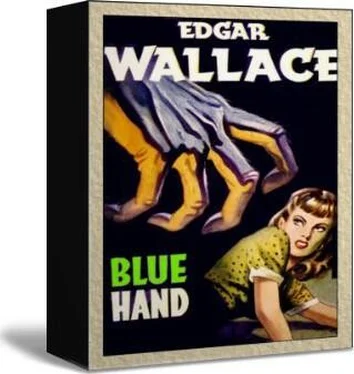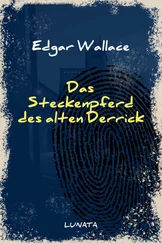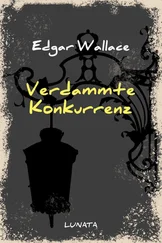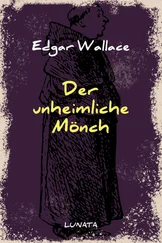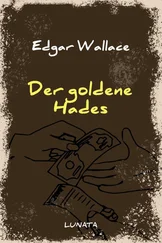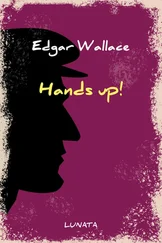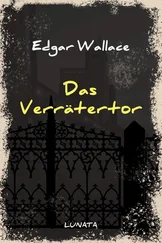Edgar Wallace - Blue Hand
Здесь есть возможность читать онлайн «Edgar Wallace - Blue Hand» весь текст электронной книги совершенно бесплатно (целиком полную версию без сокращений). В некоторых случаях можно слушать аудио, скачать через торрент в формате fb2 и присутствует краткое содержание. Год выпуска: 0101, Жанр: Старинная литература, на английском языке. Описание произведения, (предисловие) а так же отзывы посетителей доступны на портале библиотеки ЛибКат.
- Название:Blue Hand
- Автор:
- Жанр:
- Год:0101
- ISBN:нет данных
- Рейтинг книги:3 / 5. Голосов: 1
-
Избранное:Добавить в избранное
- Отзывы:
-
Ваша оценка:
- 60
- 1
- 2
- 3
- 4
- 5
Blue Hand: краткое содержание, описание и аннотация
Предлагаем к чтению аннотацию, описание, краткое содержание или предисловие (зависит от того, что написал сам автор книги «Blue Hand»). Если вы не нашли необходимую информацию о книге — напишите в комментариях, мы постараемся отыскать её.
Blue Hand — читать онлайн бесплатно полную книгу (весь текст) целиком
Ниже представлен текст книги, разбитый по страницам. Система сохранения места последней прочитанной страницы, позволяет с удобством читать онлайн бесплатно книгу «Blue Hand», без необходимости каждый раз заново искать на чём Вы остановились. Поставьте закладку, и сможете в любой момент перейти на страницу, на которой закончили чтение.
Интервал:
Закладка:
Digby went out at nine o’clock and she was left alone to read and to amuse herself as best she could. She called at Mrs. Groat’s room on her way up and learnt from the nurse that the old lady was rapidly recovering.
“She will be quite normal tomorrow or the next day,” said the nurse.
Here was another relief. Mrs. Groat’s illness had depressed the girl. It was so terrible to see one who had been as beautiful as the miniature proved her to have been, struck down and rendered a helpless mass, incapable of thought or movement.
Her room, which had impressed her by its beauty the day she had arrived, had now been enhanced by the deft touches which only a woman’s fingers can give. She had read some of the books which Digby Groat had selected for her entertainment, and some she had dipped into only to reject.
She spent the evening with The Virginian, and here Digby had introduced her to one of the most delightful creations of fiction. The Virginian was rather like Jim, she thought—but then all the heroes of all the books she read were rather like Jim.
Searching in her bag for her handkerchief her fingers closed on the little card which had been left on her table the night of her introduction to the Grosvenor Square household. She took it out and read it for the twentieth time, puzzling over the identity of the sender and the object he had in view.
What was the meaning of that little card, she wondered? And what was the story which lay behind it?
She put down her book and, rising, switched on the lamp over her writing-table, examining the card curiously. She had not altered her first impression that the hand had been made by a rubber stamp. It was really a beautiful little reproduction of an open palm and every line was distinct. Who was her mysterious friend—or was he a friend? She shook her head. It could not be Jim, and yet—it worried her even to think of Jim in this connection. Whoever it was, she thought with a little smile, they had been wrong. She had not left the house and nothing had happened to her, and she felt a sense of pride and comfort in the thought that the mysterious messenger could know nothing of Jim, her guardian angel.
She heard a step in the passage and somebody knocked at her door. It was Digby Groat. He had evidently just come in.
“I saw your light,” he said, “so I thought I would give you something I have brought back from the Ambassadors’ Club.”
The “something” was a big square box tied with lavender ribbon.
“For me?” she said in surprise.
“They were distributing them to the guests,” he said, “and I thought you might have a taste for sweeties. They are the best chocolates in England.”
She laughed and thanked him. He made no further attempt to continue the conversation, but, with a nod, went to his room. She heard the door open and close, and five minutes later it opened again and his soft footsteps faded away.
He was going to his laboratory, she thought, and wondered, with a shiver, what was the experiment he was attempting that night.
She had placed the box on the table and had forgotten about it until she was preparing for bed, then she untied the pretty ribbons and displayed the contents.
“They’re delicious,” she murmured, and took one up in her fingers.
Thump!
She turned quickly and dropped the chocolate from her fingers.
Something had hit against her window, it sounded like a fist. She ran to the silken curtains which covered the glass doors from view and hesitated nervously for a moment; then with a little catch of breath she thought that possibly some boys had thrown a ball.
She pulled back the curtains violently and for a moment saw nothing. The balcony was clear and she unfastened the latch and stepped out. There was nobody in sight. She looked on the floor of the balcony for the object which had been thrown but could find nothing.
She went slowly back to her room and was closing the door when she saw and gasped. For on one of the panes was the life-size print of the Blue Hand!
Again that mysterious warning!
CHAPTER TWELVE
EUNICE gazed at the hand spell-bound, but she was now more curious than alarmed. Opening the window again she felt gingerly at the impression. It was wet, and her fingertip was stained a deep greasy blue, which wiped off readily on her handkerchief. Again she stepped out on to the balcony, and following it along, came to the door leading to the head of the stairs. She tried it. It was locked. Leaning over the parapet she surveyed the square. She saw a man and a woman walking along and talking together and the sound of their laughter came up to her. At the corner of the square she saw passing under a street-lamp a helmeted policeman who must, she calculated, have been actually in front of the house when the imprint was made.
She was about to withdraw to her room when, looking down over the portico, she saw the figure of a woman descending the steps of the house. Who was she? Eunice knew all the servants by now and was certain this woman was a stranger. She might, of course, be one of Digby Groat’s friends or a friend of the nurse, but her subsequent movements were so unusual that Eunice was sure that this was the mysterious stranger who had left her mark on the window. So it was a woman, after all, thought Eunice in amazement, as she watched her cross the square to where a big limousine was waiting.
Without giving any instructions to the chauffeur, the woman in black stepped into the car, which immediately moved off.
Eunice came back to the room and sat down in a chair to try to straighten her tangled mind. That hand was intended as a warning, she was sure of that. And now it was clear which way the visitor had come. She must have entered the house by the front door and have got on to the balcony through the door on the landing, locking it after her when she made her escape.
Looking in the glass, Eunice saw that her face was pale, but inwardly she felt more thrilled than frightened, and she had also a sense of protection, for instinctively she knew that the woman was a friend. Should she go downstairs and tell Digby Groat? She shook her head at the thought. No, she would reserve this little mystery for Jim to unravel. With a duster, which she kept in one of the cupboards, she wiped the blue impression from the window and then sat down on the edge of her bed to puzzle out the intricate and baffling problem.
Why had the woman chosen this method of warning her? Why not employ the mundane method of sending her a letter? Twice she had taken a risk to impress Eunice with the sense of danger, when the same warning might have been conveyed to her through the agency of the postman.
Eunice frowned at this thought, but then she began to realize that, had an anonymous letter arrived, she would have torn it up and thrown it into her waste-paper basket. These midnight visitations were intended to impress upon the girl the urgency of the visitor’s fear for her.
It was not by any means certain that the woman who had left the house was the mysterious visitor. Eunice had never troubled to inquire into Digby Groat’s character, nor did she know any of his friends. The lady in black might well have been an acquaintance of his, and to tell Digby of the warning and all that she had seen could easily create a very embarrassing situation for all concerned.
She went to bed, but it was a long time before sleep came to her. She dozed and woke and dozed again and at last decided to get up. She pulled aside the curtains to let in the morning light. The early traffic was rumbling through the street, and the clear fragrance of the unsullied air came coldly as she stood and shivered by the open window. She was hungry, as hungry as a healthy girl can be in that keen atmosphere, and she bethought herself of the box of chocolates which Digby had brought to her. She had taken one from its paper wrapping and it was between her teeth when she remembered with a start that the warning had come at the very moment she was about to eat a chocolate! She put it down again thoughtfully, and went back to bed to pass the time which must elapse before the servants were about and any kind of food procurable.
Читать дальшеИнтервал:
Закладка:
Похожие книги на «Blue Hand»
Представляем Вашему вниманию похожие книги на «Blue Hand» списком для выбора. Мы отобрали схожую по названию и смыслу литературу в надежде предоставить читателям больше вариантов отыскать новые, интересные, ещё непрочитанные произведения.
Обсуждение, отзывы о книге «Blue Hand» и просто собственные мнения читателей. Оставьте ваши комментарии, напишите, что Вы думаете о произведении, его смысле или главных героях. Укажите что конкретно понравилось, а что нет, и почему Вы так считаете.
